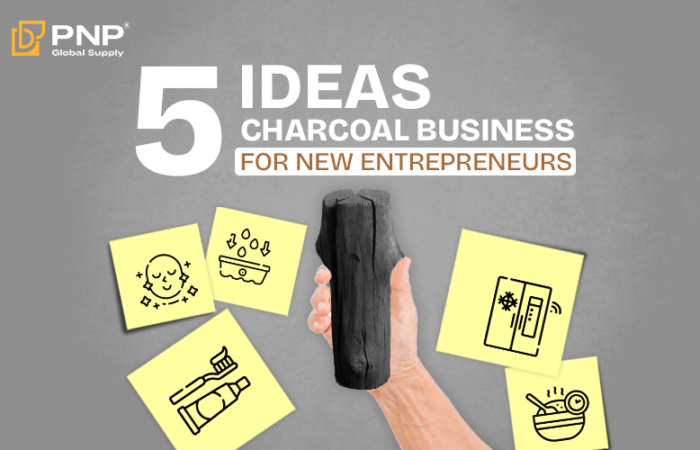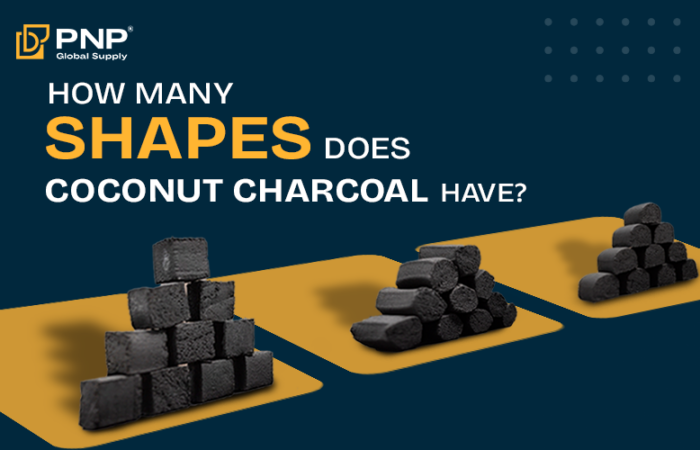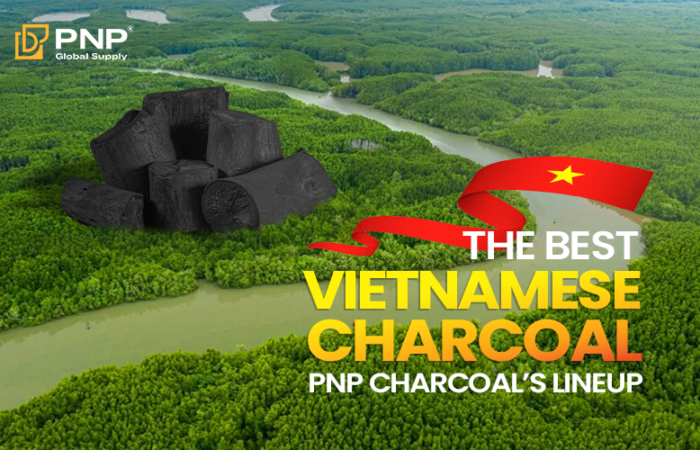In recent years, coconut charcoal has emerged as one of the most eco-friendly and high-performance fuels for cooking and heating. Especially favored by grill lovers and sustainable living advocates, coconut charcoal offers a unique combination of clean burning, long-lasting heat, and low waste. In this article, we’ll explore the key benefits of coconut charcoal, its popular forms like coconut charcoal cubes, and its rising role in the global BBQ briquette market.
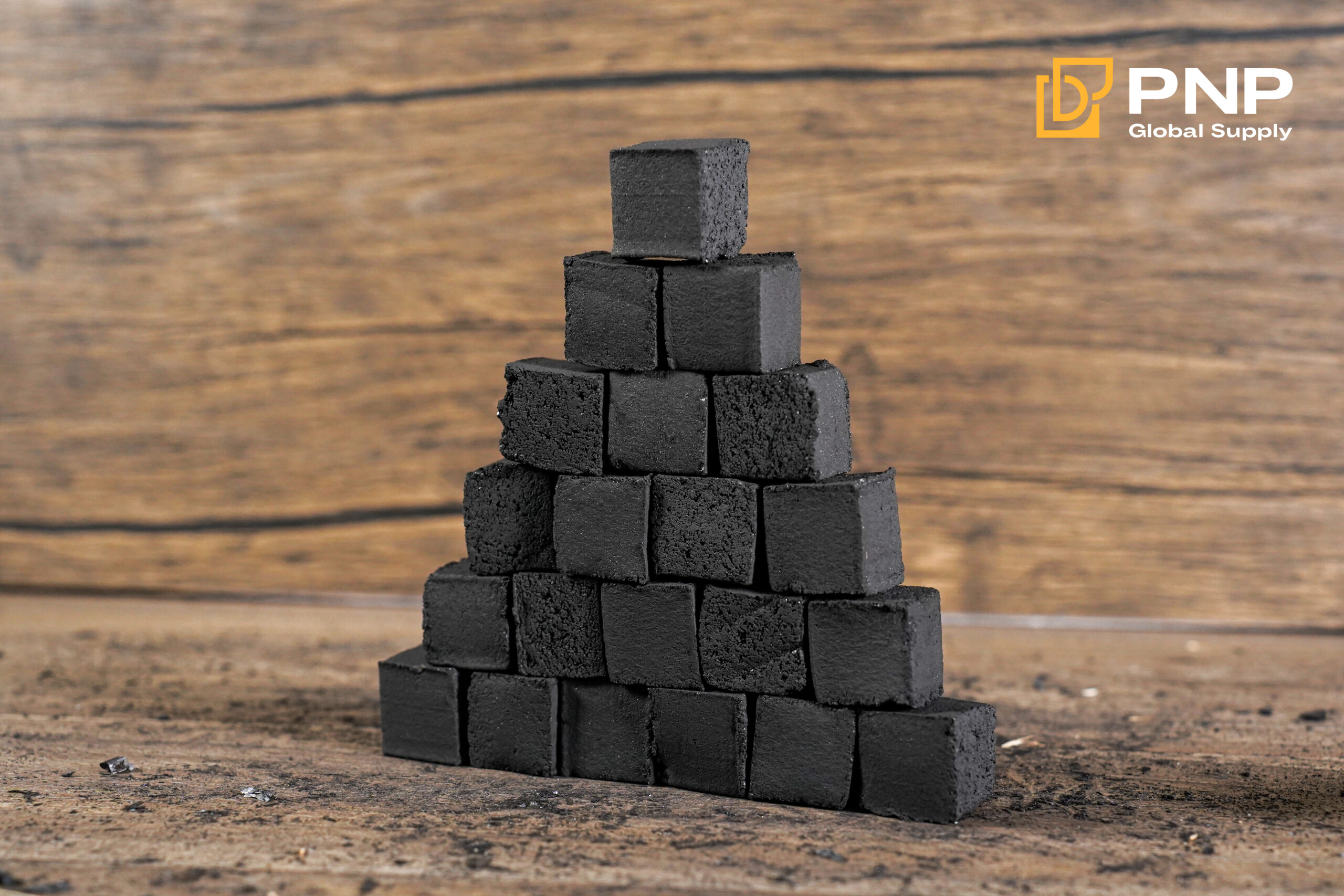
What is Coconut Charcoal?
Coconut charcoal is a type of biochar made by carbonizing discarded coconut shells—an agricultural waste product of the coconut industry. Unlike traditional charcoal made from wood, coconut charcoal is 100% sustainable, renewable, and does not contribute to deforestation. After carbonization, the charcoal is crushed and compressed into various shapes such as coconut charcoal cubes or briquettes for use in cooking, grilling, and heating.
Benefits of Coconut Charcoal
Long-Lasting Cooking
Coconut charcoal burns steadily for 3 to 4 hours, making it an excellent choice for BBQs or long grilling sessions. Its long burn time helps maintain consistent heat without the need for constant refueling.
Perfect Grilling Results
It delivers stable, high heat, ideal for searing meats, grilling seafood, and roasting vegetables. Whether you’re using a coconut charcoal BBQ grill or cooking in a professional kitchen, this type of charcoal ensures even cooking and desirable grill marks.
Cleaner, Better-Tasting Food
Coconut charcoal burns cleanly, producing very little smoke and no chemical odors, so it doesn’t overpower or alter the natural flavors of your food. This allows ingredients like meat, seafood, and vegetables to retain their true taste. That’s why coconut charcoal is often preferred for dishes where flavor purity is important, such as in Japanese or Korean-style grilling.
Reduced Environmental Impact
Coconut charcoal is produced from waste coconut shells, a byproduct of the coconut industry. No trees are cut down in the process. This promotes sustainable resource use and supports a circular economy in coconut-producing countries.
Easy Cleanup
Thanks to its high carbon content, coconut briquette charcoal leaves behind less than 5% ash. This means less mess, making post-cooking cleanup faster and more convenient.
Safe for Cooking
Coconut charcoal, especially export-grade and food-grade types, is typically free from chemical additives or binders. This ensures it is non-toxic and safe for food preparation, providing peace of mind for both home cooks and professional chefs.
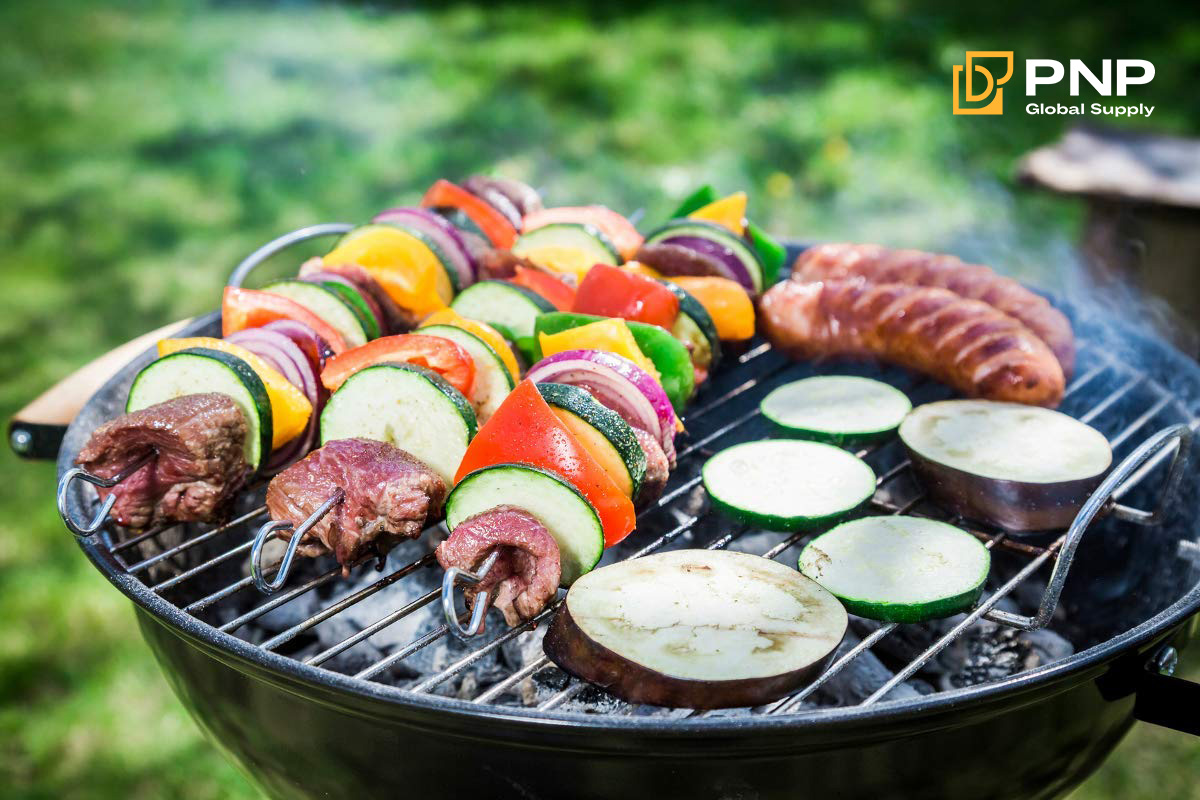
How Much Does Coconut Charcoal Cost?
The price of coconut charcoal in 2025 can vary significantly depending on several key factors, including the quality grade, moisture level, shape (such as cube, hexagonal, or pillow), packaging type, and origin.
For bulk export purchases, especially BBQ-grade coconut shell charcoal, prices typically range from $700 to $1,100 per metric ton FOB. However, for high-end, premium-grade coconut charcoal with consistent shape and low ash content, the price can go as high as $1,200 to $1,400 per ton. These variations are influenced by:
- Country of origin (Vietnam, Indonesia, Sri Lanka, etc.)
- Carbon content and fixed carbon level
- Production methods and sustainability certifications
- Shipping method
If you’re purchasing coconut charcoal for personal or small-scale use, the price is usually calculated per kilogram. Retail prices range from $1 to $3 per kg, depending on:
- Packaging format
- Branding and presentation
- Retail channel (online platforms, specialty BBQ stores, or supermarkets)
In short, whether you’re a BBQ restaurant owner importing containers or a home griller buying a small pack, understanding the charcoal’s specifications and market trends will help you estimate the right cost.
To learn more about coconut charcoal prices and trends in 2025, please read the following article: Coconut Charcoal Price Update in the 2025 Charcoal Market
Popular Coconut Charcoal Uses
Coconut charcoal is used in a wide range of applications:
- BBQ and Grilling: Coconut briquettes are popular in both household and commercial grills, providing long heat and clean flavor.
- Hookah/Shisha: Though not your current focus, coconut charcoal cubes are also widely used in global hookah markets for their steady burn and clean smoke.
- Industrial Heating: Some industries utilize coconut charcoal in furnaces and kilns.
- Air Purifiers & Filters: Powdered coconut charcoal is also used for detoxifying air, water, and even in cosmetics.
Coconut Charcoal vs Other Charcoal Types
Compared to traditional lump, hardwood charcoal, coconut charcoal stands out in several key ways.
First, in terms of sustainability, coconut charcoal wins hands down. While lump charcoal and hardwood briquettes often involve deforestation and intensive wood harvesting, coconut charcoal is made from agricultural waste—coconut shells—that are abundant and renewable.
In terms of performance, coconut charcoal burns longer—often up to four hours—while lump charcoal tends to burn faster and less consistently. Though hardwood briquettes offer decent burn time, they still fall short in consistency and often leave more ash behind.
Coconut charcoal also burns with almost no smoke or smell, creating a more pleasant cooking experience. Its low ash content (typically below 5%) means less mess to clean up post-cooking.
For those looking to grill indoors, entertain guests in a patio setting, or cook with minimal environmental impact, coconut briquette charcoal offers a cleaner, safer, and more sustainable solution.
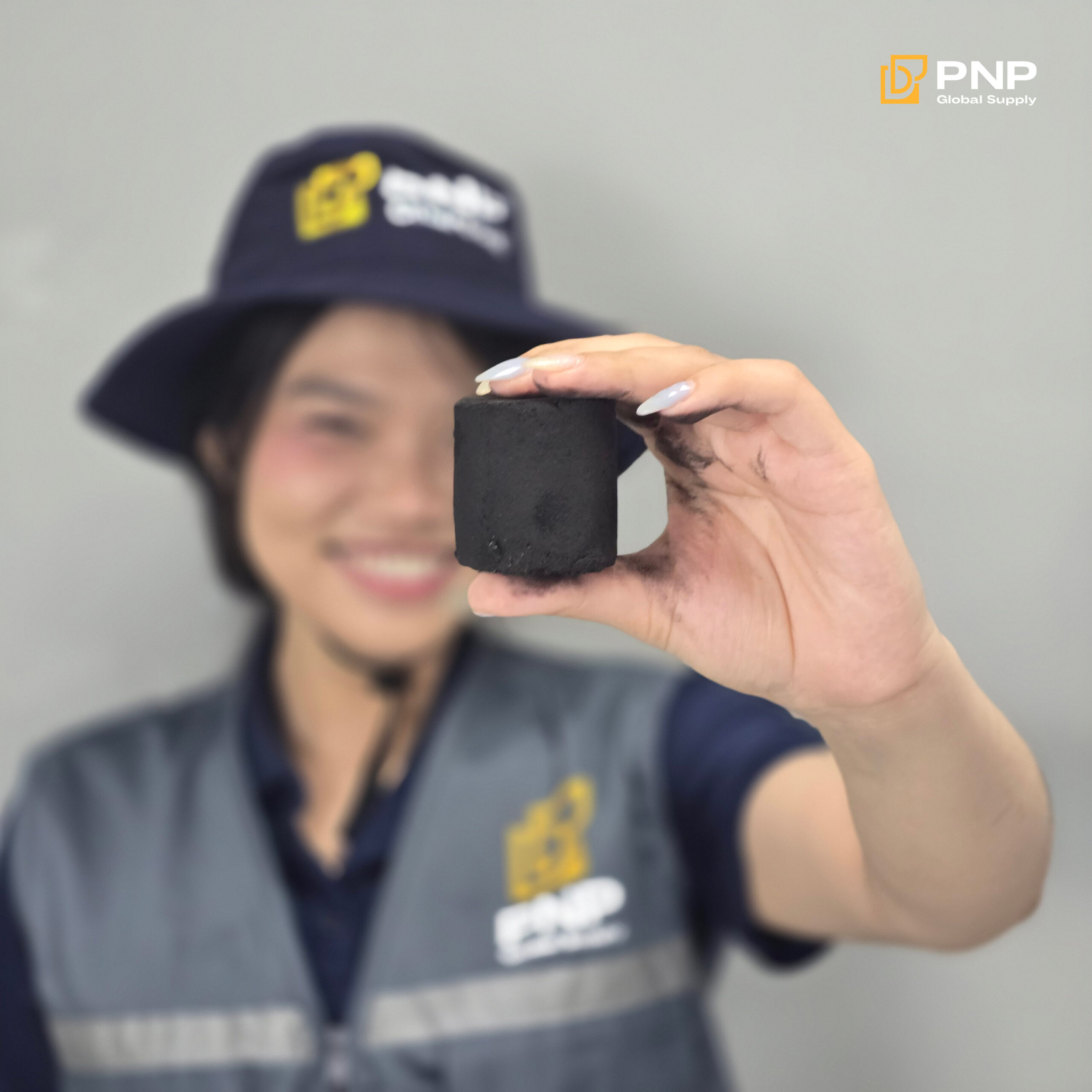
The Rise of Coconut Charcoal Exporters
As demand for coconut charcoal continues to grow in key markets such as Europe, the Middle East, and North America, countries in Southeast Asia—particularly Vietnam, Indonesia, and the Philippines—have emerged as major exporters in the global charcoal trade. These suppliers play a crucial role in meeting international standards by offering products with clear specifications, certificates of analysis (COA), and consistent quality in terms of moisture content and combustion performance. Reputable exporters distinguish themselves by ensuring uniform shape and reliable burn time, maintaining moisture levels below 8%, and delivering charcoal with fixed carbon content above 70%. In addition, many focus on using eco-friendly packaging and providing dependable shipping timelines with full logistics support, reinforcing their position as trusted partners in the international charcoal market.
PNP Charcoal proudly offers premium coconut charcoal that meets the highest international quality standards, including consistent burn time, low moisture content, and eco-friendly packaging. To explore more types of high-quality charcoal for your needs, visit our website: pnpcharcoal.com and discover the full range of PNP Charcoal products designed for superior performance and sustainability.
You can discover why to choose PNP’s coconut charcoal in the video below. Why Choose PNP’s Coconut Charcoal?
Conclusion
Coconut charcoal is more than just a trend—it’s the future of sustainable grilling. The benefits of coconut charcoal, such as long burn time, clean smoke, and minimal environmental impact, make it the preferred fuel for BBQ enthusiasts and eco-conscious businesses alike. Whether you’re exploring coconut charcoal uses for your own grill or looking to connect with a trusted coconut charcoal exporter, now is the perfect time to make the switch.
________________________________
Contact us for more information
Facebook: PNP Charcoal
Instagram: PNP Charcoal
Email: info@pnpglobalsupply.com

